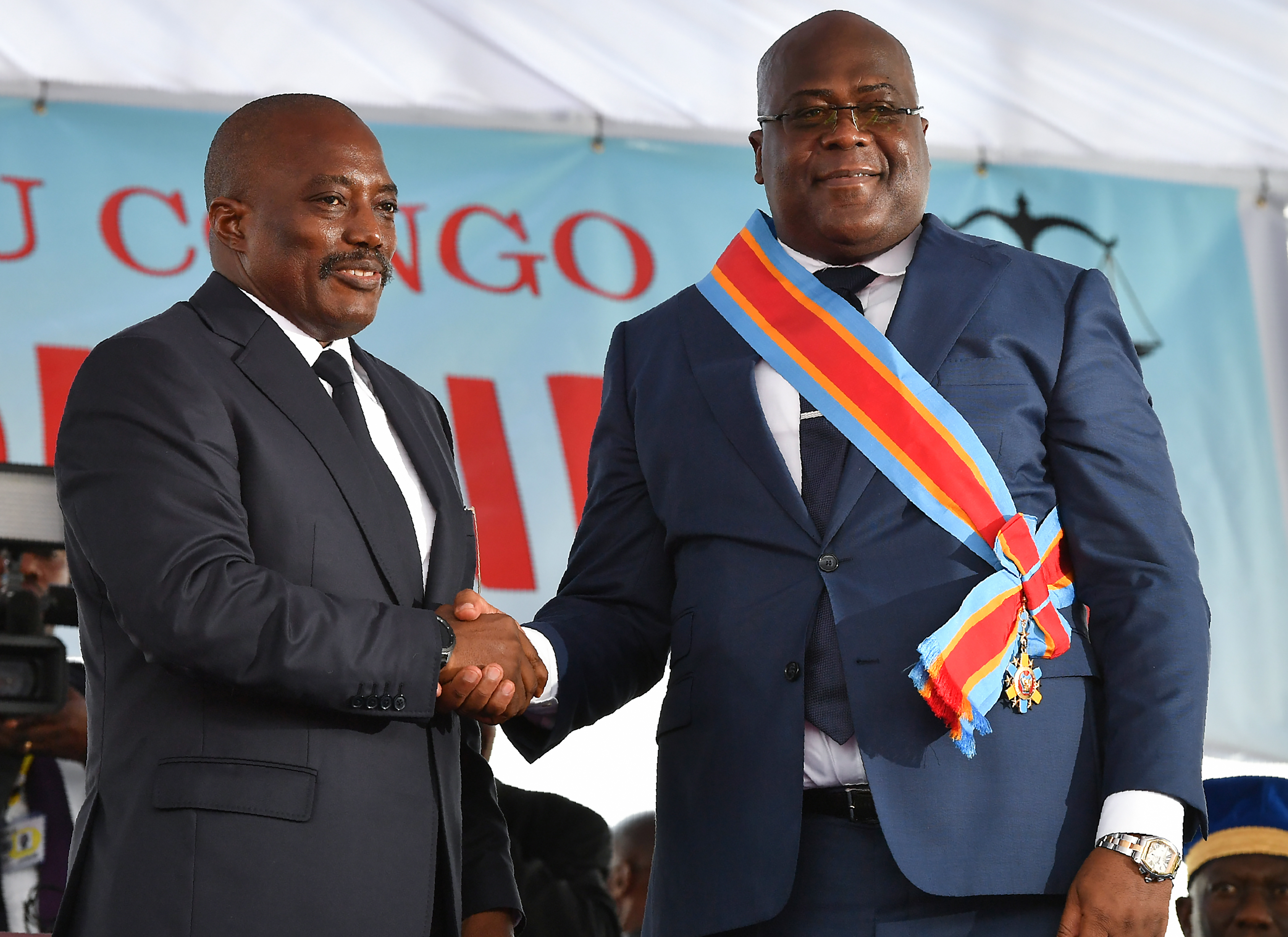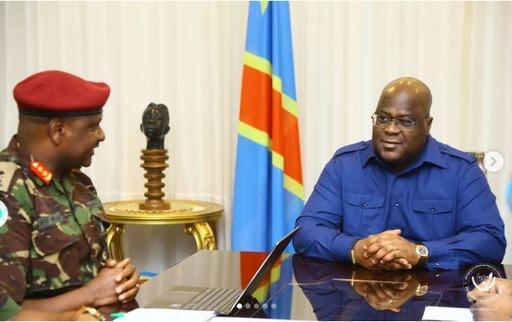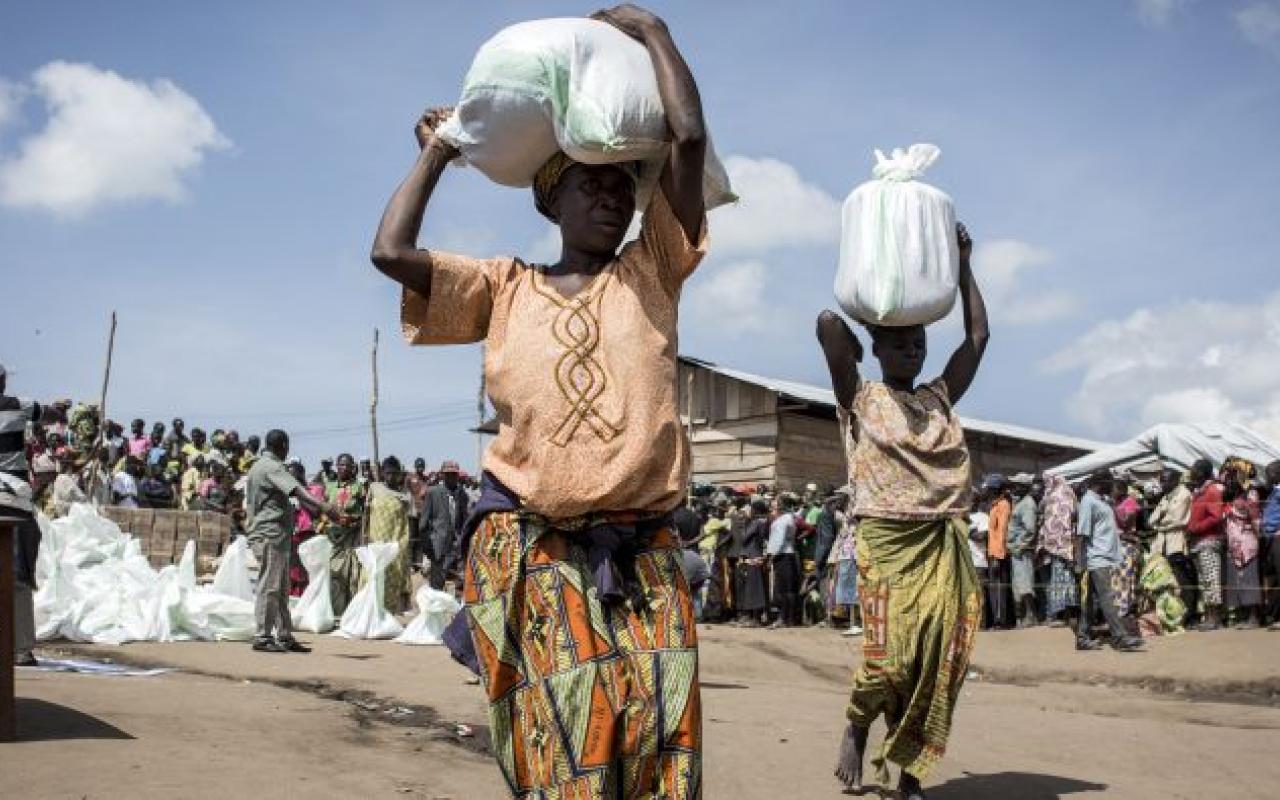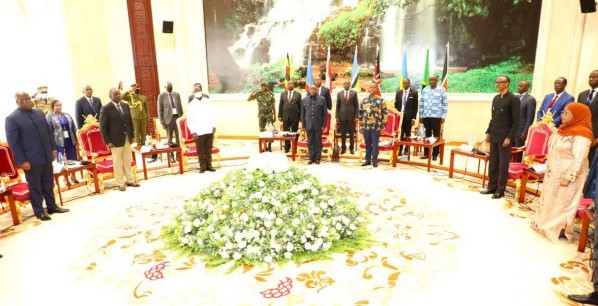Regional
How Tshisekedi betrayed Kabila

The year
2019 saw Kinshasa usher in a new leader, Félix Tshisekedi, son of long time
Congolese opposition leader, Étienne Tshisekedi. The new president who was
unknown in politics before the then elections, was supported by his
predecessor, Joseph Kabila, in frauding the polls to gain power.
Sources
in Kinshasa reveal that Tshisekedi lost the elections, emerging third after
Emmanuel Ramazani Shadary and Martin Faluyu who is said to have been the
president-elect.
Although
Fayulu won, Tshisekedi had stricken a deal with Kabila and his close circle who
were heavily networked and influential. They overturned the results of the elections
and made Tshisekedi winner. The deal with Kabila was that Tshisekedi rules for
one term and Kabila returns for another term.
The
architects of the Kabila-Tshisekedi alliance were François Beya, Gaston-Thethe
Kabwa Kabwe, Fortunat Biselele, Vital Kamerhe and Maj Gen Delphin Kahimbi.
Maître Kabwa, Kabila’s cousin, is the one who drafted the agreement between the
two politicians.
After
Tshisekedi was sworn in, he quickly figured out that he lacked a grip on both
the military and governance system. The men who engineered his alliance with
Kabila knew that he needed help in terms of connecting to the world, being
accepted internally and externally, as well as knowledge of how state affairs
are run.
Had
it not been for Kabila planning his return to power, Tshisekedi would not have
been able to get the presidential seat. He was weak on all fronts, including leadership
skills. It seemed impossible for Tshisekedi to climb from underneath Kabila’s
shadow. But Tshisekedi had a little room for maneuver. And he grabbed it.
In
power since 2001, Kabila had tightened control of DRC’s major institutions
including the army, intelligence services, constitutional court and electoral
commission. Kabila’s party, the Common Front for Congo (FCC) controlled two-thirds
of parliamentary seats.
Greedy
as Tshisekedi is, when he got into office, he started clipping off the wings,
and lives, of those who made him. His mission was to ensure that the deal
between him and Kabila perished. He jailed Gen Kahimbi and killed him in
prison. He then poisoned Maître Kabwa which lead to his death. Kamerhe and Beya
were framed, jailed, humiliated, and cut off from the system.
By
2021, Tshisekedi had finally taken control, loosening Kabila’s seemingly
indestructible iron grip on power behind the scenes.
The
pro-Kabila head of the Senate, Alexis Thambwe-Mwamba, resigned as MPs prepared
a censure motion against him. Then the vast majority of FCC MPs switched their
allegiances and joined Tshisekedi’s new political group, Union sacrée, giving it a large majority in the lower chamber.
These
MPs pushed out pro-Kabila Prime Minister, Sylvestre Ilunga Ilunkamba, a month
after they ousted the head of the National Assembly. “There was never any trust between Tshisekedi
and Kabila,” said Trésor Kibangula, an analyst at research foundation, the
Congo Study Group.
As
Tshisekedi cut out the parties that made him, he clearly knew the times ahead
were not going to be easy. He embarked on using the Fayulu strategy of
demonizing Rwanda in the hope that the strategy would win him public sympathy
and popularity.
Tshisekedi
arranged a secret meeting with Fayulu in Nairobi, Kenya, and asked him for help
in advancing the anti-Rwanda campaign. Fayulu’s alliance with Tshisekedi has
since resulted in an almost full-blown Genocide against the Kinyarwanda-speaking
Congolese and hate geared towards Rwanda.
Fayulu
is now the next in line among those that Tshisekedi betrays.
When
Tshisekedi formed Union sacrée he
intended to get majority support in parliament so that he would be in a
position to weaken Fayulu’s influence to power. With that, the parliament may
decide to informally, if not illegally, accord him more time in office or
postpone the December 2023 elections.
Tshisekedi
knows he is too weak to win the hearts and minds of the Congolese.
He is
cornered by his internal demons, scared of his seemingly silent opponents,
frustrated by his weak army that cannot find a away to defeat the Congolese
rebel group called M23 – which he prefers to call Rwandan yet he is actually
cohabiting with Rwandan mass murderers in the form of the FDLR genocidal
militia blamed for the 1994 genocide against the Tutsi in Rwanda – and is a
dangerous time bomb because of his irrational greed for power.
Tshisekedi
only banks on manipulations, betrayals, and incitements. This is why he cannot spend a day without demonizing
and scapegoating Rwanda for his failures.
As
the region, and the world watches developments in Kinshasa ahead of the omnious
December 2023 polls – which Tshisekedi will pull all strings to disrupt or
cancel by steering chaos in the volatile east – one thing bothers Kinois.
Tshisekedi’s
Kabila phobia is a recipe for disaster.







